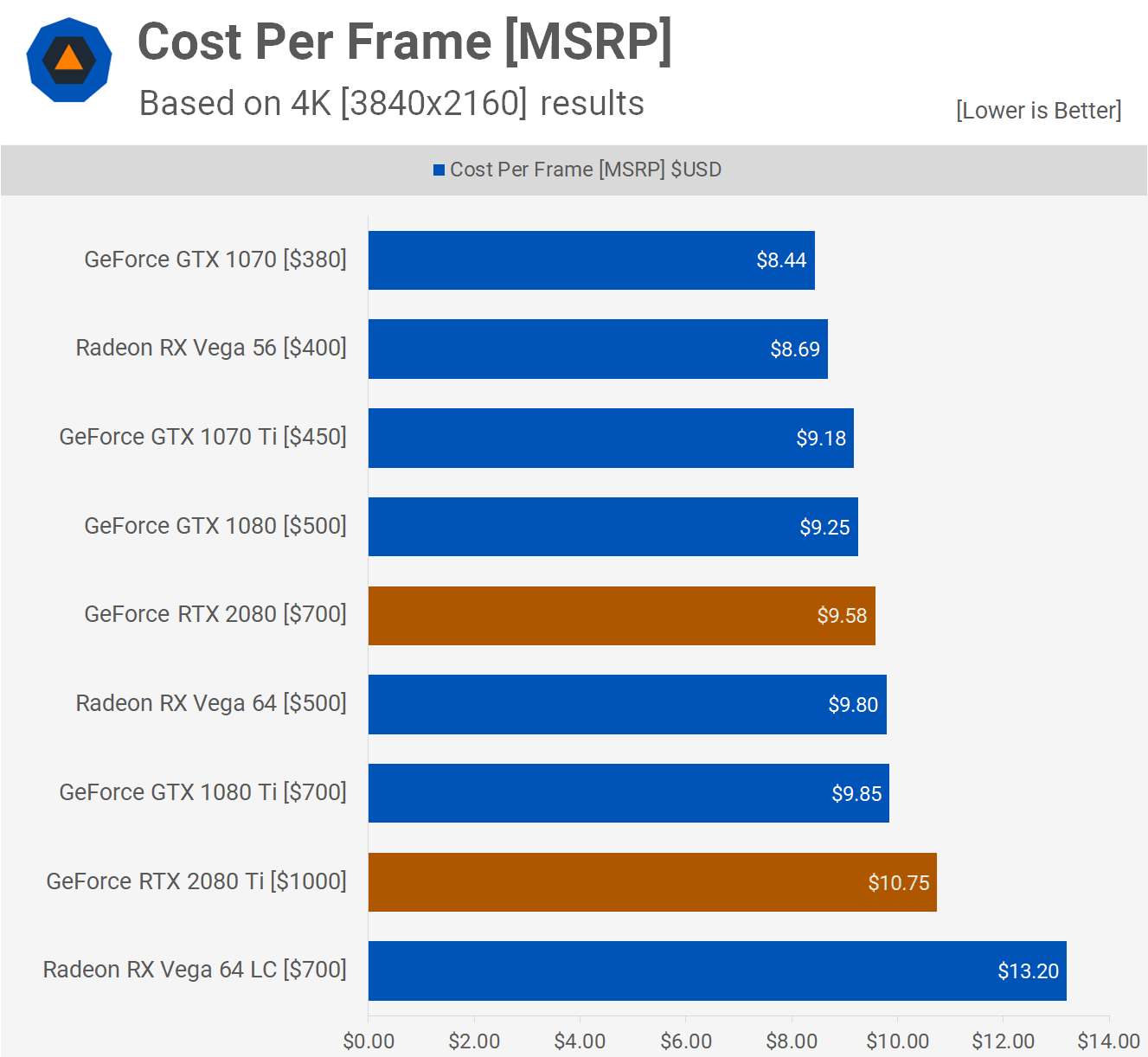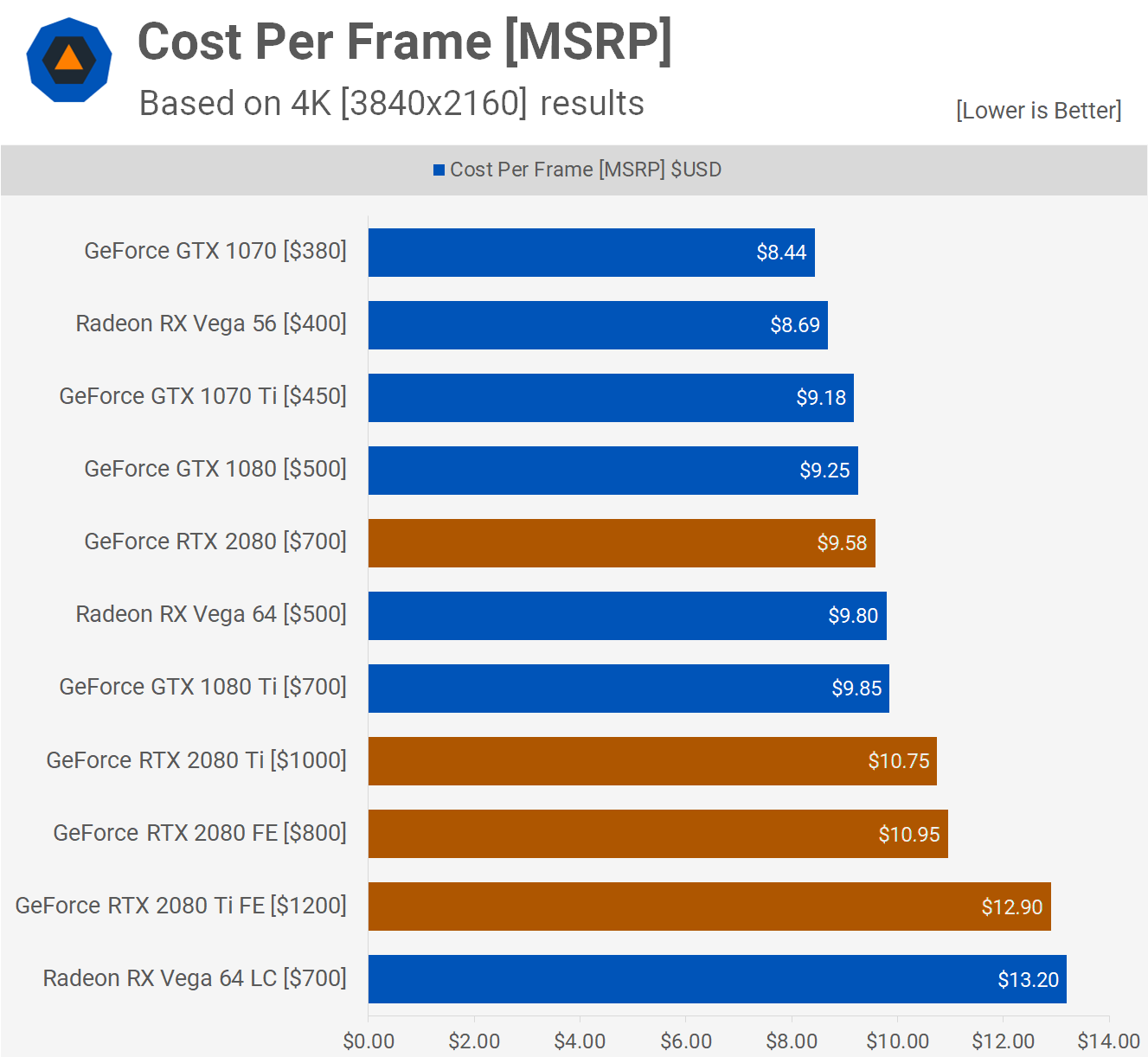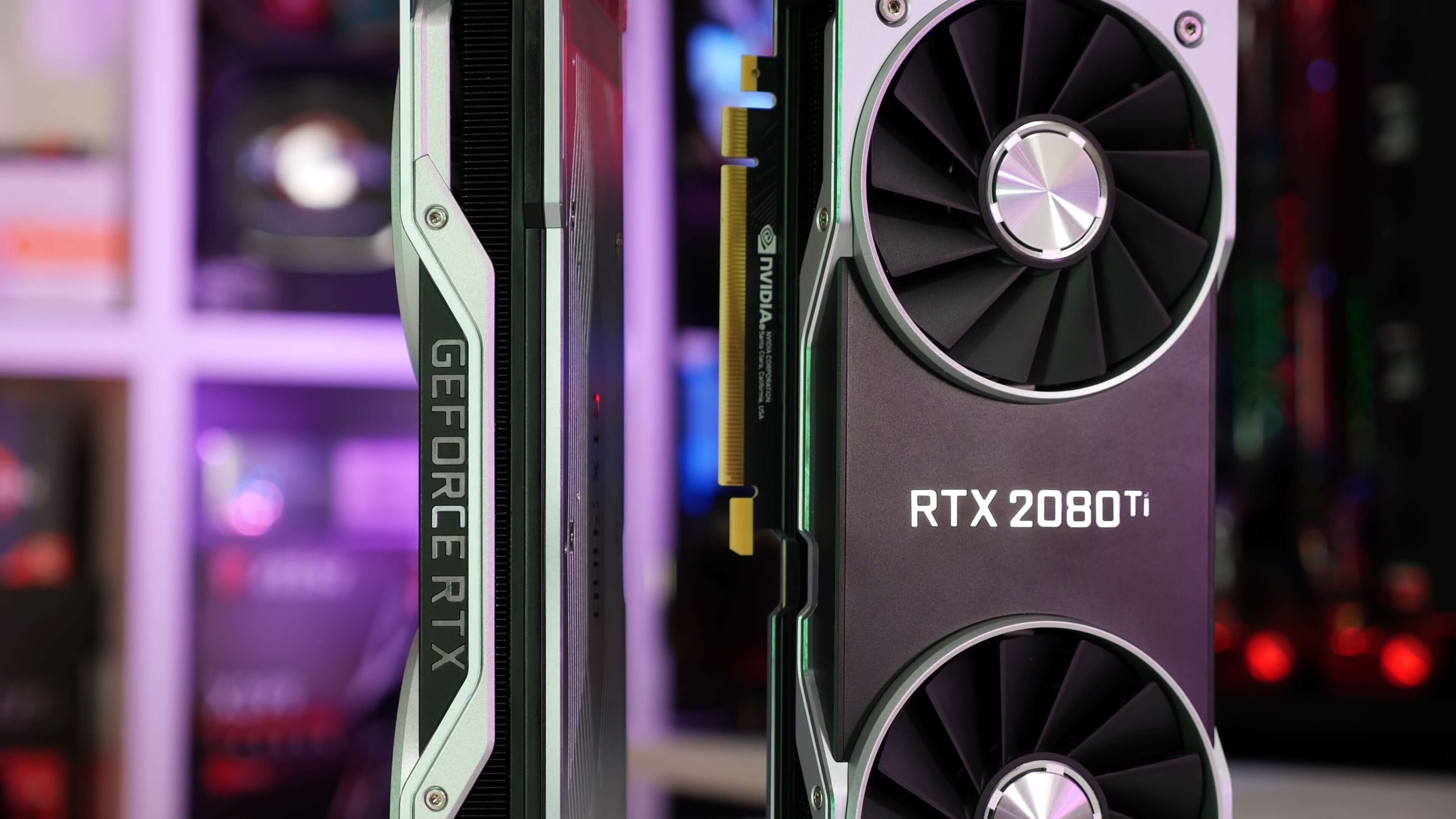Performance Summary (Charts!)
That's 23 more games that we didn't look at in our day one coverage but it's worth noting that the dozen games shown in yesterday's review were selected to give an accurate picture of how the GeForce 20 series compares to the 10 series GPUs across a broad range of games. So the average performance margins won't change by much, just a single percent here and there. So we already know how the 1080 Ti and 2080 Ti compare, but let's get a clear picture of where the gains are coming, and where they aren't.

As you can see on average across the 35 games tested the 2080 Ti is on average 23% faster than the 1080 Ti at 1440p. In yesterday's review we showcased the big wins in Rainbow Six Siege and Wolfenstein II, but here we see the 2080 Ti was also a weapon in Kingdom Come Deliverance and Deus Ex: Mankind Divided.
Then we see pretty poor gains in titles such as GTA V, War Thunder, ARMA 3, Wreckfest, Rise of the Tomb Raider, Hitman and Quake Champions, for example. Some of this is down to the system, a CPU bottleneck for example, but some of it is also likely down to drivers and it's possible Nvidia will be able to improve things here.

We can minimize any system bottlenecks and make these games more GPU bound by testing at 4K and doing so extends the 2080 Ti's lead over the 1080 Ti out to 30%. We also see some examples of 50% gains in Rainbow Six Siege and Wolfenstein II, truly remarkable stuff, I just wish we saw more of it.

Now looking at the RTX 2080, when compared to the 1080 Ti it was just 1% faster on average at 1440p. Its only notable wins came in Rainbow Six Siege and Wolfenstein II while it was slower by 5% or more in Hitman, Rise of the Tomb Raider and Project Cars 2.

The margin remains the same at 4K and the performance trends are also much the same, so overall the 2080 is offering 1080 Ti-like performance.

When compared to the GTX 1080 the new 2080 was 29% faster on average at 1440p which isn't bad and slightly better than the 23% gain the 2080 Ti provided over the 1080 Ti.

Finally at 4K the RTX 2080 offered 33% more performance which is certainly a very respectable gain, but of course as we saw in the previous review it really comes down to how they stack up in terms of cost per frame. The following section of the article is a repeat of what was shown yesterday. We were going to skip it but for anyone who missed the day one coverage, this is important stuff so we felt we should include it.
Cost Per Frame
First let's look strictly at the AIB MSRP, that's the suggested retail price for Nvidia's board partners like MSI, Gigabyte, Asus and so on. So added to the model names on the graphs axis are the MSRP's, $1,000 for the RTX 2080 Ti for example.
This means the 2080 Ti comes at a cost of $10.75 per frame based on our performance data just seen. That figure alone means nothing but when compared to the 1080 Ti it means you're paying a 9% price premium for the new flagship GPU, so although the MSRP has increased by 43% given the additional performance you're only paying 9% more. But of course that's not really how we should look at this given Pascal is a 2 year old architecture, but I'll discuss this more later.

The RTX 2080 comes in at a cost of $9.58 per frame and that makes it just 4% more costly than the GTX 1080 and 3% cheaper than the GTX 1080 Ti. So that actually seems pretty good, and by all accounts it is. I mean it's not exactly great progress as you're effectively paying GTX 1080 Ti money for GTX 1080 Ti performance and we've had that for a year and a half now.
The situation gets much worse if we price in the Founders Edition models, the 2080 FE costs as much as an AIB 2080 Ti per frame and then the $1200 2080 Ti comes in at a staggering $12.90 per frame, 31% more than the 1080 Ti. But it gets even worse than that because you are forced to pay the FE premium on all GeForce 20 series cards, here's a look at current market prices.

This is what you can currently expect to pay for the RTX 2080 and 2080 Ti and it's pretty brutal. The 2080 comes in at a cost of $11.50 per frame making it worse value than Vega 64 and 20% more costly than the GTX 1080 Ti for the same performance. The 2080 Ti is basically a breakeven scenario, it's about 30% faster than the GTX 1080 Ti and it costs 35% more per frame. Of course you want to be able to use all that extra performance as it costs almost 80% more up front.

